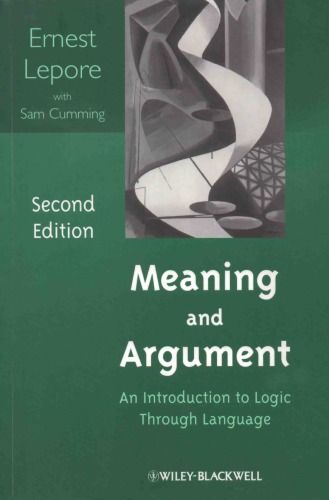

Most ebook files are in PDF format, so you can easily read them using various software such as Foxit Reader or directly on the Google Chrome browser.
Some ebook files are released by publishers in other formats such as .awz, .mobi, .epub, .fb2, etc. You may need to install specific software to read these formats on mobile/PC, such as Calibre.
Please read the tutorial at this link: https://ebookbell.com/faq
We offer FREE conversion to the popular formats you request; however, this may take some time. Therefore, right after payment, please email us, and we will try to provide the service as quickly as possible.
For some exceptional file formats or broken links (if any), please refrain from opening any disputes. Instead, email us first, and we will try to assist within a maximum of 6 hours.
EbookBell Team

4.7
26 reviewsThis volume is ideal as an introduction to formal logic, philosophical logic, and philosophy of language. At each stage of system elaboration and development, the book answers meta-logical questions. Why is a particular formalism needed? What must go into such a formalism and why? These questions engage students in a collective inquiry which allows them to see logical studies as a human enterprise aimed at achieving well-understood goals—clarity and good reasoning.
This second edition extends and systematizes the account of anaphora, including "donkey" anaphora, plural anaphora, and cross-sentential anaphora. It also has additional sections on counter-models and semantics, and contains additional exercises and an updated bibliography.
Ernest Lepore is the Associate Director of the Center for Cognitve Science at Rutgers University and is the author of numerous articles in philosophy of language. He is co-author (with Herman Cappelen) of Insensitve Semantics (Blackwell, 2004) and co-author (with Jerry Fodor) of Holism (Blackwell, 1991). He is editor of Truth and Interpretation (Blackwell, 1989), co-editor (with Zenon Pylyshyn) of What is Cognitive Science? (Blackwell, 1999), and general editor of the series Philosophers and Their Critics, published by Wiley-Blackwell.
Sam Cumming is Assistant Professor of Philosophy at the University of California, Los Angeles.